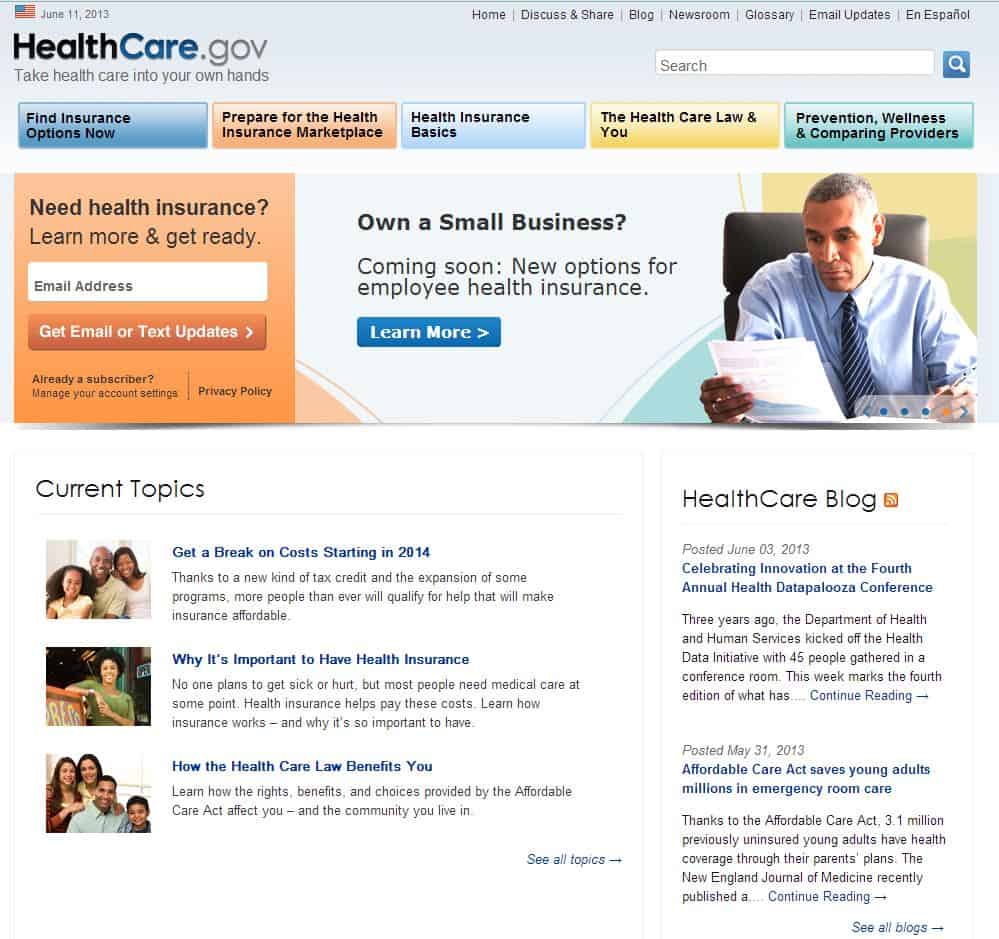
by Mike Yoder | Business Strategy, Legal Compliance, Payroll
Last night, a federal district court in Texas granted a preliminary injunction that temporarily blocks the U.S. Department of Labor from implementing and enforcing its recently revised regulations on the white collar exemptions to the Fair Labor Standards Act (FLSA).
As you know, the overtime rule was scheduled to take effect Dec. 1 and would have raised the salary threshold from $23,660 to $47,476.
Employers should note that this is only a temporary injunction, not a permanent one. The injunction simply prevents the regulations from going into effect on December 1. There will be a decision issued at a later date on the actual merits of the case, so changes in the FLSA salary threshold for exemption may be back. However, the judge wouldn’t have granted the preliminary injunction unless, among other things, he thought the states showed a substantial likelihood of succeeding on their claims.
What may be likely is the change will eventually go through – but maybe with a lower number or a small business limitation or exemption created by the Trump Administration and the new Congress.
As Servant HR has worked through the ramifications with many of you, some of you did make some decisions. If your decisions included salary increases to employees in order to maintain their exempt status and HAVE BEEN COMMUNICATED, you may wish to leave that in place as it would be difficult to take that back. We cannot assume that the overtime rule will be permanently barred.
However, if there are exempt employees who were going to be reclassified to nonexempt that have not been or wage increases had not been promised yet, you may want to postpone those decisions and give the litigation a chance to play out.
Servant HR will continue to advise you as implementation becomes more clear.
While we have already reached out to many of you, if you have specific questions about your situation or wish to undo something you already have communicated to us, please contact us directly.
And HAPPY THANKSGIVING a little early!!

by Mike Yoder | Business Resource, Business Strategy, Legal Compliance, Outsourcing
Business owners have to take risks to grow, but not all risks are worth the gamble. When it comes to outsourcing HR services, as with all business decisions, smart entrepreneurs and owners take calculated risks — not leaps of faith.
Risks worth considering
The kind of risk business owners like and should be willing to take should feel more like opportunities to gain than to fail. A cost-benefit analysis should be applied to any situation from which you could lose. For example, insurance is a hedge against risk. You make payments to your provider so that you reduce liability for things such as property damage. Other such risks worth considering include things including
- moving into a new market
- purchasing new software
- changing processes or systems
- increasing your marketing budget
Risks to avoid — always
On the other hands, some risks are fraught with danger, with no benefits available. Anything in your business related to taxes or your company’s general welfare isn’t worth the gamble. If you don’t have general liability insurance, for example, serious company-killer risks can emerge. Simple errors and omissions can put your company at considerable risk.
HR Risk Management
If you are considering outsourcing HR services, the big questions to ask yourself are:
- What are my responsibilities and risks as an employer?
- What are my risks and responsibilities if I outsource?
From a HR professional’s perspective, employers carry three major areas of risk.
1. IRS/TAX COMPLIANCE. When issues of compliance and withholding funds for tax purposes come into play, there is no benefit to being risky. The short-term effects of mishandling tax issues include penalties and additional taxes. This is also where audits with employee classification come into place. If you have misclassified someone as an employee or contractor, you can owe back wages, benefits and taxes, and may be required to pay interest and penalties.
WHEN YOU OUTSOURCE: A full-service PEO collects and passes on payroll taxes, workers’ compensation payments and other IRS-related items so the employer doesn’t assume all of the risk involved. While you can’t outsource every aspect of IRS liability because you still have some control over your workers and workplace, you are receiving consulting advice on statutes, which helps you make smart HR decisions.
2. EMPLOYMENT LAW. Federal, state and local employment laws can be a hairy, complicated combination of rules and requirements. Compliance issues cover employee handbooks, required signage in workplaces — workers’ compensation, employee rights, minimum wage amounts, etc. — and processes related to hiring, disciplining and firing employees. If you aren’t diligent, you can end up with fines, penalties, lawsuits related to wage/hour issues or discrimination, attorney’s fees, lost business and opportunities. These are company-killer issues you don’t want to risk.
WHEN YOU OUTSOURCE: When you outsource these kinds of legal compliance items, you are obtaining access to the knowledge and experience to reduce your risks of legal liability.
3. COMPANY CULTURE AND RETENTION. If you choose to cultivate and manage your company’s culture and manage employee retention on your own, you should expect to spend a lot of time and money to do it well. You want to train your team to be their best, and you want to keep them on the payroll. A lot of studies show that replacing an employee is often as expensive as a full-year’s salary of that employee. Between ending a relationship with one employee, and recruiting, training and getting up to speed a new employee, you are losing precious time and opportunities — plus the financial burden of that process.
There’s a real financial cost to creating the right place to have the right talent. An engaged employee is going to be a more valuable employee. In fact, a Gallup poll of more than 17 million employees showed that engaged employees are more profitable, productive, customer focused and safer. If you aren’t doing everything right when it comes to support your company culture and retention rate, you are definitely carrying serious risk.
WHEN YOU OUTSOURCE: A PEO is a full-service human resources service provider, which means it doesn’t stop at legal compliance and payroll issues. It provides consulting and direction to ensure your company’s goals are being supported by a strong culture, and engaged employees are keys to that overall picture. If you outsource the risk related to building and maintaining a valuable culture, you are putting those responsibilities in the hands of professionals who know that the occasional ice cream social isn’t going to prevent employees from finding other employers.
What are your responsibilities and risks as an employer? What are your risks and responsibilities if you outsource? If you would like to learn more about how a PEO can reduce your risk, please contact me, Mike Yoder, at 317-585-1688.
Lumatic via Compfight cc
![Health Care Reform in 2014: How employers can prepare today]()
by Jeff Leffew | Business Strategy, Legal Compliance, Outsourcing

HealthCare.gov is a great source for more information.
The wheels of health care reform are constantly turning, leading to new and revised requirements being rolled out on a rather irregular basis. What was market driven up to this point will be directed by federal government health care reform in the future. In the past, employers of at least 50 full-time or the equivalent of 50 full-time employees had a choice whether to offer insurance. In the future, the choice will be laden with costly consequences. Health care reform is another large government regulation that will have an impact similar to that of Cobra and the FMLA on businesses. It’s a game of play or pay.
While there are still many unknowns, we do know several big changes business owners can prepare to see come to pass in 2014. Here are three ways you can prepare for health care reform in 2014 and one overarching “Bottom Line” choice to consider.
1. In light of the individual mandate, take a hard look at insurance benefits for employees.
The biggest thing to happen in 2014 will be the individual mandate. In 2014, virtually every American will have the “choice” to obtain health insurance coverage through one means or another. If they choose not to obtain health insurance, they will be subject to a related tax. Under this individual mandate, individuals will be able to purchase coverage on their own or through their employers.
If they don’t carry insurance, they will have to pay a tax. For example, if a 20-year-old male in excellent health chooses not to purchase insurance, he will have to pay a punitive tax. Other likely candidates who will choose to or have to pay this penalty include the superrich and the poor.
At this time, if you want to find private insurance, you have to go through a broker, which, some argue, is typically a rather clumsy process. As a result, the federal government is creating exchanges. These exchanges are essentially online sellers of insurance.
Unfortunately, creating a more transparent, fluid marketplace for insurance will not have the same effect this same approach has had on online sellers such as Travelocity and Amazon. The math needed to lower the cost of insurance simply doesn’t add up. The risk carriers take on is simply too high and unpredictable. In fact, projections are that insurance rates will go up as a result of the individual mandate. As insurance becomes more regulated, competition will likely go down.
2. Better understand upcoming market reforms so you can make smart decisions.
Another major change related to health insurance is market reform, which includes a number of changes. The Patient’s Bill of Rights falls under market reform and is designed to, among other things, protect children (and eventually everyone) from obtaining coverage if they have a pre-existing medical condition. The market reforms going into effect in 2014 also prevents annual dollar limits from being set on annual medical coverage of essential benefits such as hospital, physicians and pharmacy benefits.
Under the law, if a plan includes children, a parent can cover children on their health insurance plan until the child turns 26 years old. Prevention regulations in 2014 will require new private health plans to cover certain evidence-based preventive services. Rate reviews will be put in place to improve insurer accountability and transparency.
These are just few of the reforms coming down the pipeline for employers. It is important to familiarize yourself with these upcoming changes, as your employees will have questions about how these changes will affect them. Be prepared to help them understand why costs are going up and where the blame lies so you don’t feel the brunt of it.
3. Budget now to pay new taxes in 2014.
There are a number of new federally imposed taxes that will begin in 2014. These are being put into place to offset insurance premiums, which are projected to go up across the board.
- Reinsurance Assessment fee — A flat fee to be paid 2014-2016 that applies to both insurance and self-insured plans that provide major medical coverage
- The Health Insurance Industry fee — Created to help offset cost-generating provisions of health care reform
- Patient Centered Outcomes Research Institute (PCORI) fee — Designed to fund research that will compare different medical treatments and interventions to determine what is most effective
- Federally Facilitated Exchange User fee — Put in place to pay for access to exchanges facilitated by the federal government
Employers can’t avoid having to pay these taxes. It doesn’t matter how healthy your team is or how robust your wellness programs are, these new taxes need to be in your budget in 2014.
BOTTOM LINE: Decide who you are in your marketplace.
The most far-reaching, strategic action that business owners can take regarding health care reform is to think about what role they want to play and what impact they want to make in this new group benefits world and then act accordingly. Look at who you are in your marketplace and what you’re trying to be for your people. Ask yourself what all of this means from an employee retention and morale standpoint. What should you do in order to recruit and keep valuable employees?
If your business is small (49 employees or fewer), you have a real choice whether to offer insurance. If you choose to offer it, something else in your business will have to give to pay for the future pay increases that are inevitable. Perks such as gym memberships and paid parking spaces might become things of the past. If you’re a large group (50 or more employees) and you don’t want to offer insurance, you will be liable for a significant tax.
Aside from advocating change, business owners need to know how to handle the changes. Having a partner such as a PEO professional who can help them navigate these choppy waters is critical.
I can offer much more insight into how health care reform will affect your business. Please contact Servant HR more for a free consultation.
![Health Care Reform in 2014: How employers can prepare today]()
by Mike Yoder | Business Strategy, Legal Compliance, Outsourcing

Many people look at human resources as one of those things you have to do in business. It’s just the way it is. Our clients understand that human resources isn’t just an obligation — which it is to a degree — but when it’s used strategically, it can be a means to unlock opportunities and grow your business. The bottom line is, when you use a PEO, you are being strategic.
Here are six ways a PEO helps you grow your business:
1. PEOs create the freedom for you to focus on your business. PEOs like Servant HR take projects off their clients’ plates. Administrative tasks are the obvious ones. For example, the State of Indiana requires you to report all new hires. This is one of the things that can easily slip through the cracks at businesses in growth mode. When you are focused on building your infrastructure, hiring the best people and moving into new markets, tasks like reporting a new hire can get lost — and get you in trouble. When you have someone else focusing on those things, you can keep growing your business. There’s no wasted time scrambling to figure what’s required and how to fulfill the requirement. A PEO simply does it, often without our clients even knowing it’s been done. Setting up workers’ compensation is another admin task that often goes overlooked — we just do it.
2. We can help minimize potential attorney fees and wasted time. You probably have an accountant, so when you have an accounting-related question, you call your accountant. In the same way, once business leaders understand their PEO’s areas of involvement, they begin to contact them first when they are dealing with a sensitive HR-related issue.
Going directly to your PEO when you have an issue may help prevent you from wasting money on attorney fees or wasting time researching issues on your own. If we can handle the issue, we will. If we need to work with a client’s attorney to help, we will, and we will have the background information needed to inform our client’s attorney of the issue. In this way, a PEO can help look out for your bottom line.
3. PEOs work strategically with your business goals in mind. Your PEO knows your employee handbook from cover to cover – it probably helped you develop it. And it knows your company philosophy and priorities. When you are dealing with risk issues, such as a discipline challenge, business leaders can turn to their PEO to help them figure out the next steps, and those handbook details and understanding of your business play key roles in how you should strategically respond to risk-laden circumstances. PEOs advise their clients with a full understanding not only of your employee numbers but also an understanding of where you stand financially and other seemingly non-HR matters.
4. PEOs minimize risk. Entrepreneurs recognize the depth and breath of HR today. Healthcare reform helps greatly accentuate that point. All employers are intimately aware of opportunities and threats related to legislation and regulations. If you don’t follow the rules, you could conceivably lose your business in a matter of months. That doesn’t happen often, but it can happen. When you work with a PEO and have a process in place related to payroll, benefits, risk management, workers’ compensation, employee coaching and counseling services, you can keep your eye on the ball in your particular area without worrying about potential penalties or threats related to HR legislation. It’s like using an FDIC-insured bank, as a PEO assumes some of the risk related to HR issues.
Take payroll for example, if you withheld moneys for taxes and didn’t submit them to the government, it’s a federal offense. I’ve seen this happen often. Most of the time, I believe it happens by accident, but there isn’t a risk of this happening when you work with an effective PEO. As another example, you might not know about some FMLA rules that you inadvertently ignored. An employee who bears the brunt of your ignorance might bring a suit against you for failing to comply. A PEO helps take on some of the risk related to these types of issues.
5. A PEO’s process adds value in the eyes of investors. When investors are shopping for opportunities, their due diligence process is thorough. When they see that you work with a PEO, you are demonstrating that you are focused on growing your business (not HR admin tasks) and you don’t have any HR skeletons in your closet. Having a PEO’s input as a third party also can appear as more reliable than information submitted to a potential investor directly from the business seeking funds.
6. Having a PEO in place is impressive for prospective employees. For businesses that want to grow, seeking out and hiring top employees is key. When a potential hire sees that you have health care plans, direct deposit, an employee handbook and other HR-related items in place, they regard you as credible. They can see that you have your house in order as it relates to one of the most important aspects of your business – your people. A PEO helps put that internal structure in place.
If you have questions about how a PEO relationship works, please contact me, Scott Ingram, at 317-585-1688.
by Jayne Blazier | Business Strategy, General, Legal Compliance
http://youtu.be/O3ICltpSf2s
Is unemployment tax all doom, gloom and writing checks to the government? Staff Accountant Jayne Blazier offers up three positive aspects of unemployment tax and ways you may be able to decrease the amount you pay.
Visit the Servant HR video page to learn more ways to strengthen your HR. If you can’t see the video above, visit http://youtu.be/O3ICltpSf2s.
by Mike Yoder | Employee Benefits, Legal Compliance
http://youtu.be/_WwKJsrLdBs
Don’t allow a COBRA misstep to show its fangs and trigger thousands of dollars in potential penalties. Loren Elms, Payroll Administrator at Servant HR, shares five questions every employer should ask about COBRA to help keep themselves out of harm’s way. Get a primer on the following:
1. Is my company subject to COBRA?
2. Who qualifies for COBRA coverage?
3. How long does COBRA coverage last?
Get all five questions and Loren’s expertise on each in the video. Watch more ways to strengthen your HR here. If you can’t see the video above, visit http://youtu.be/_WwKJsrLdBs.




